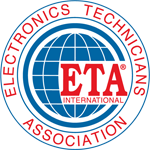Begin a career in electronics technology with a focus on advanced manufacturing processes.
Major Details
 Electronic equipment is everywhere: in our homes, businesses, factories, vehicles. Continuing advances in electronics have made possible the sweeping technological changes we see all around us. That's why there will always be a high demand for individuals with the training to build, design, and maintain electronic devices.
Electronic equipment is everywhere: in our homes, businesses, factories, vehicles. Continuing advances in electronics have made possible the sweeping technological changes we see all around us. That's why there will always be a high demand for individuals with the training to build, design, and maintain electronic devices.
When you earn the 12-credit certificate in Automation Electronics at Minnesota State College Southeast in Winona, you will learn both the theory and practical aspects of electronics. The focus is on electronics related to advanced manufacturing. Course work and hands-on lab experience cover:
- DC and AC Electricity
- Digital Electronics
- Instrumentation and Controllers
- Programmable Logic Controllers
Equipped with knowledge of electric and electronic principles, graduates may work in design, repair, or installation of industrial electronics and maintenance of these devices.
A member of the Electronics Technician Association (ETA)
Apply now for admission to Minnesota State College Southeast
Cluster/Pathway
Career Field: Engineering, Manufacturing & Technology
Cluster: Science, Technology, Engineering & Mathematics
Pathway: Engineering & Technology
Download the Program Plan
Courses
1) 1000 level (minimum) General Education courses required unless specified.
ELEC1202
Introduction to DC Electricity
This course covers the general information, theory, and problem-solving techniques required for an analysis of DC circuits with emphasis on the meter measurements, current flow, and voltage division. (Prerequisite: Proficient in basic math) (2 credits: 1 lecture/1 lab)
Download the Course Outline
2 cr
ELEC1204
Introduction to AC Electricity
This course covers the general information, theory, and problem-solving techniques required for an analysis of AC circuits. Topics include: AC waveforms, oscilloscope operation, meter measurements, and AC vs. DC comparisons. (Prerequisites or Concurrent: ELEC1202, proficiency in basic math)
(2 credits: 1 lecture/1 lab)
Download the Course Outline
2 cr
ELEC1212
Digital Electronics I
Students will learn about basic digital gates and how to use those gates to develop combinational logic circuits. Experimentation with digital circuits will aid in the reinforcement of the fundamental digital concepts. (Prerequisite: None) (3 credits: 2 lecture/1 lab)
Download the Course Outline
3 cr
ELEC1330
Introduction to Instrumentation & Control
This course is an introduction to sensing, instrumentation and control using The BASIC Stamp microcontroller. Pre-built applets will be used to input and output data from digital and analog interfaces, make logical decisions based upon the inputs. Devices interfacing with this tool may include, but are not limited to photo-electric sensors, servos, and LEDs. Upon completion, students should have a fundamental understanding of how The BASIC Stamp can be used for data input, control, and monitory environments. (Prerequisite: none) (2 credits: 1 lecture/1 lab)
Download the Course Outline
2 cr
ELEC2221
Programmable Controllers
This course covers the operation of programmable logic controllers. The hardware and software aspects of the controllers will be explored in the lab. The basic ladder diagram, timer, counter and sequencer instructions will be covered. Additionally, advanced operation and programming of programmable logic controllers, including greater depth of programming, HMI development, and I/O through laboratory instruction will also be covered. Communication between the PLC and Human Machine Interface will also be covered in depth. The master control, data manipulation and control instructions will also be explored. NOTE: This course is equivalent to the combined ELEC 2218 and ELEC 2219 course series. (Prerequisites: ELEC1202, ELEC1204, and ELEC1212 or permission of instructor) (3 credits: 2 lecture/1 lab)
Download the Course Outline
3 cr
Total Credits Required for this Major: 12 Credits
Estimated Costs for this Major
| Approximate Tuition/Fees: | $2,706 |
|---|
| Minimum Tool Cost: | N/A |
|---|
| Books/Supplies: | $675 |
|---|
| Estimated Total: | $3,381 |
|---|
Career Opportunities
-
Electronic System Installation/Maintenance
- Manufacturing System Installation/Maintenance
- Electronic Engineering Technician
- Computer Equipment Repair/Maintenance
- Computer Network Installation/Maintenance
- Wireless Communication Systems Installation/Maintenance
- Technical Field Service
- Technical Sales
- Security System Technician
- Residential Electronics Systems Integrator
Career Information
Use the MN DEED Career and Education Explorer Data Tool to learn about wages, job growth, and much more in this career field.
Outcomes
Program graduates will be able to:
- Use knowledge and skills to analyze, troubleshoot, measure and/or program systems and devices used in the Electronics industries.
- Repair systems and equipment by applying logic and knowledge to solve complex problems.
- Demonstrate the use of software, programming, and interfacing to troubleshoot micro and personal computers.
- Demonstrate an ability to communicate effectively.
- Demonstrate an ability to apply knowledge of mathematics, science, and engineering to the analysis of electronic problems.
- Apply acquired skills and learn new skills by engaging in lifelong learning.
- Work as a productive and responsible team member.
- Function with a respect for diversity and knowledge or professional, social, and global issues.
Highlights
-
Broad spectrum of career opportunities
- Current technology is implemented in the curriculum
- 50% of class work is hands-on
- Our instructors stay current in the electronics field
- Electronic technicians play a critical role in technology
Instructors
-
Marc Kalis
-
Marc Kalis received his Electronics Diploma from Austin Technical Institute (Riverland Community College, Austin Campus) and currently holds a license in Electronics Technology for the State of Minnesota. Marc has experience in a variety of electronic areas which include but are not limited to: medical equipment repair, industrial controllers, networking, computers and mobile electronics. He is an IPC-A-610 Class “A” Instructor (solder joint inspection), a J-STD-001 class “A” Instructor (Solder Application Specialist, and a Mobile Electronics Certified Professional.